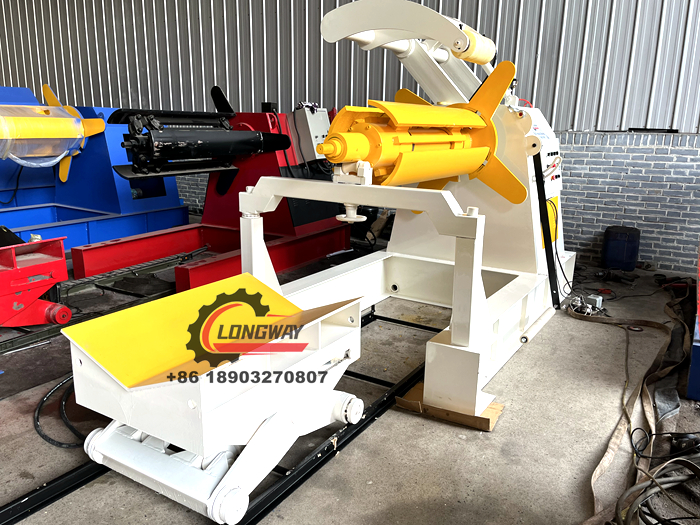Types of Manufacturers for Roll Forming Machines and Their Key Features
Understanding the Types of Roll Forming Machine Manufacturers
Roll forming machines play a crucial role in the manufacturing industry by creating complex shapes and profiles from flat sheets of metal. These machines are essential for producing components used in various sectors, including construction, automotive, and appliances. With advancements in technology and increasing demand, several manufacturers have emerged in the roll forming machine market. This article discusses the various types of roll forming machine manufacturers and the critical elements to consider when selecting one.
Types of Roll Forming Machine Manufacturers
1. Custom Roll Forming Machine Manufacturers
Custom roll forming machine manufacturers focus on creating bespoke solutions tailored to specific customer needs. These manufacturers work closely with clients to develop machines that cater to unique product designs and production requirements. Customization may involve adjustments in machine design, roll tooling, and production speeds. Industries requiring specific shapes that are not readily available often turn to these manufacturers to meet their unique specifications.
2. Standard Roll Forming Machine Manufacturers
Standard roll forming machine manufacturers produce a range of machines designed for common applications. These manufacturers offer machines with pre-defined specifications, allowing businesses to choose from ready-made options that fit their standard production needs. These machines are often more cost-effective since they are mass-produced and readily available in the market. Companies looking for quick solutions and common profiles typically opt for standard models.
3. High-Speed Roll Forming Machine Manufacturers
In industries where production speed is critical, high-speed roll forming machine manufacturers dominate. These manufacturers focus on developing machines capable of handling high production rates while maintaining quality and precision. High-speed machines utilize advanced technology, including automated controls and efficient designs, to enhance production efficiency. These are ideal for operations requiring rapid output, such as metal roofing, wall panels, and automotive components.
4. Heavy-Duty Roll Forming Machine Manufacturers
Heavy-duty roll forming machines are essential for producing robust components used in demanding applications. Manufacturers of heavy-duty machines employ sturdy materials and advanced engineering techniques to ensure durability and performance under stress. Industries such as heavy manufacturing and construction often rely on these machines to create structural components that must withstand significant loads and environmental conditions.
5. Portable Roll Forming Machine Manufacturers
With the rise of flexibility in manufacturing processes, portable roll forming machines have gained popularity. Manufacturers of portable machines create lightweight, compact units that can be easily transported to different job sites. These machines are suited for on-site fabrication, allowing builders to create metal profiles without the need for extensive setup at a centralized facility. This type of manufacturer caters to the needs of contractors and smaller operations that require mobility.
Factors to Consider When Selecting a Roll Forming Machine Manufacturer
types of roll forming machine manufacturer

While there are various types of roll forming machine manufacturers, selecting the right one involves careful evaluation of several factors
1. Experience and Reputation
Choosing a manufacturer with a strong industry reputation and extensive experience is vital. Experienced manufacturers are likely to have a better understanding of market needs and technological innovations, ensuring reliability and quality in their machines.
2. Technology and Innovation
Look for manufacturers that utilize the latest technology in their machines. Advanced features such as digital controls, smart automation, and energy-efficient designs are essential for enhancing productivity and reducing operational costs.
3. Support and Service
Post-purchase support is crucial for maintaining the efficiency and longevity of roll forming machines. A manufacturer that offers comprehensive support, including training and maintenance services, can provide a significant advantage in the long run.
4. Customization Options
If unique profiles are required, consider manufacturers that offer a degree of customization. This can ensure that the machines will meet the specific production needs and align with business goals.
5. Cost and Value
While price is an important factor, it is essential to assess the overall value offered by the manufacturer. Compare features, specifications, and customer service to ensure that you are making a sound investment in your manufacturing capabilities.
Conclusion
The roll forming machine market is diverse, with various types of manufacturers catering to different production needs. Understanding the distinctions among custom, standard, high-speed, heavy-duty, and portable manufacturers can help businesses make informed decisions that align with their operational requirements. Careful consideration of factors such as experience, technology, support, customization options, and value will lead to selecting a manufacturer that enhances production efficiency and quality in metal forming processes.
-
Roof Panel Machines: Buying Guide, Types, and PricingNewsJul.04, 2025
-
Purlin Machines: Types, Features, and Pricing GuideNewsJul.04, 2025
-
Metal Embossing Machines: Types, Applications, and Buying GuideNewsJul.04, 2025
-
Gutter Machines: Features, Types, and Cost BreakdownNewsJul.04, 2025
-
Cut to Length Line: Overview, Equipment, and Buying GuideNewsJul.04, 2025
-
Auto Stacker: Features, Applications, and Cost BreakdownNewsJul.04, 2025
-
Top Drywall Profile Machine Models for SaleNewsJun.05, 2025








